The Independent's journalism is supported by our readers. When you purchase through links on our site, we may earn commission. Why trust us?
8 best vegan perfumes with staying power and character
Once you invest in one of these cruelty-free spritzes, you won’t look back
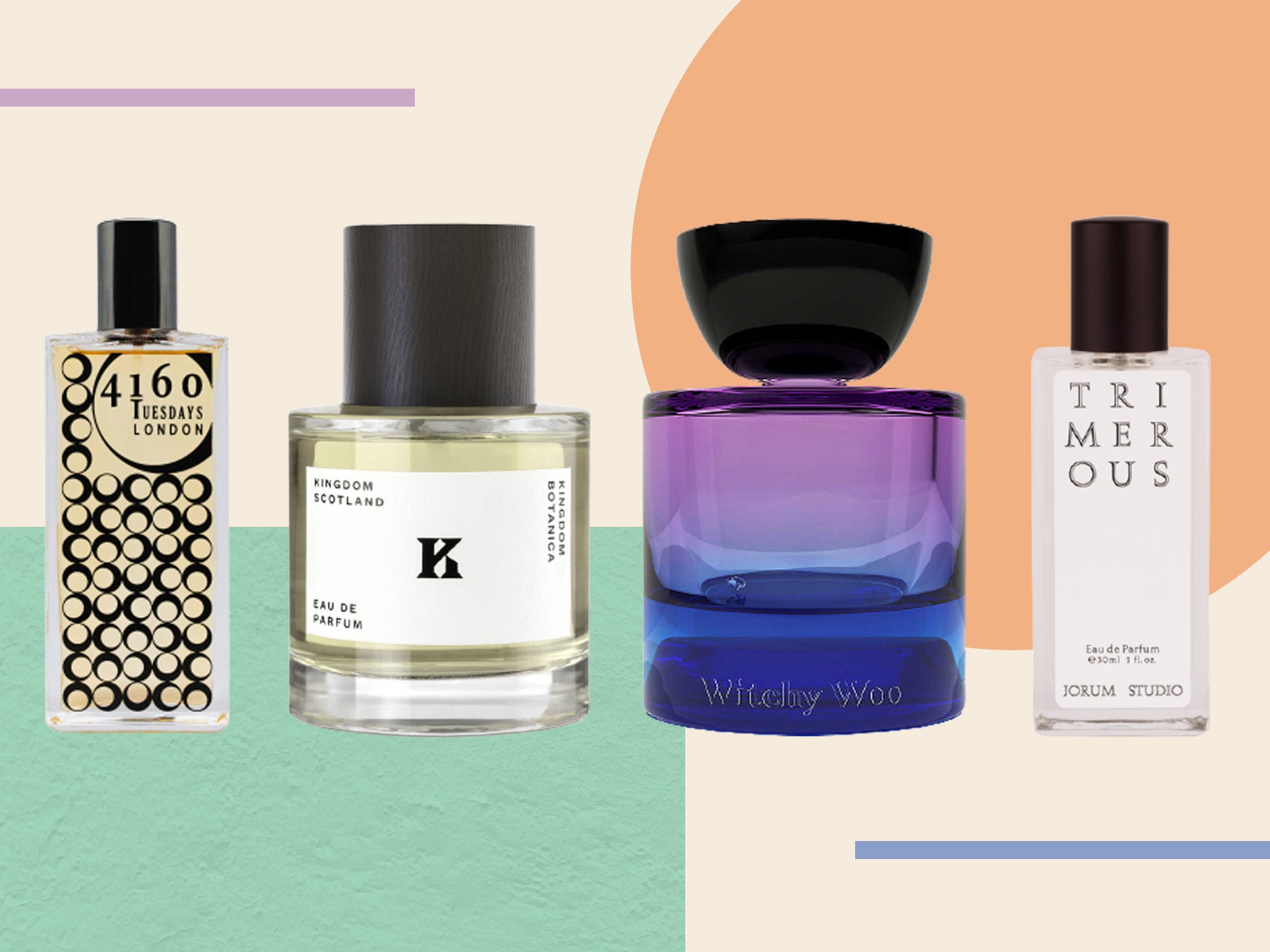
More and more of us are embracing a vegan lifestyle, from what we put on our plates to what we display on our dressing table. That’s why more brands – including fragrance brands – are trying to accommodate this switch.
You may think perfume automatically ticks the “vegan” box, but it’s not always the case. While animal-derived ingredients such as musk and civet (derived from musk deers and civet cats, respectively) have been recreated in synthetic form, beeswax and honey are among several non-vegan ingredients that are still frequently used in perfumery.
You can scour ingredients lists for these, but the best way to guarantee whether a perfume is vegan is making sure it is clearly labelled as such (which is how we selected our chosen scents) or if the brand itself is entirely vegan.
How we tested
As well as testing the scents themselves, we focused on brands that really seemed to care about their vegan credentials, rather than just add the label as a marketing gimmick. We tested every scent directly on our skin – and examined how it changed character from when we first sprayed it on to a few hours later, noting how original the bouquet was and how well it lasted.
We wanted a perfume with character, that told a story and had some decent staying power, as well as one which used the ingredients in new and interesting ways. We also wanted to make sure the brand’s vegan ethos was part of its DNA and that it was truly conscientious about the ingredients it used.
From vibrant citrus notes that practically sing when released from the bottle, to intoxicating floral accords that echo the Grande Dames of 1930s Hollywood, we’ve found the best vegan perfumes of the bunch.
The best vegan perfumes are:
- Best overall – Bon Parfumeur 001: £94, Bonparfumeur.com
- Best for fans of soft, delicate scents – Medeau safara: £95, Medeaufragrances.com
- Best for ride or die city dwellers – Floral Street London poppy: £68, Sephora.co.uk
- Best for a dash of English eccentricity – 4160Tuesdays Hammersmith tea and biscuits: £65, 4160tuesdays.com
- Best for lovers of a cult classic – The Body Shop white musk (re-launched): £18, Thebodyshop.com
- Best for a scented suit of armour – Vyrao witchy woo: £135, Vyrao.com
- Best for budding horticulturalists – Kingdom Scotland kingdom botanica: £120, Lessenteurs.com
- Best for something a little different – Jorum Studio trimerous: £84, Jorumstudio.com
1Bon Parfumeur 001

- Best Overall
- Scent notes Bergamot, lemon and mandarin, orange blossom and jasmine
- Size 100ml
This “clean” Parisian perfume brand is ideal for those who prefer to eschew synthetics altogether. Their concoctions comprise up to 97 per cent of natural ingredients, while ingredients they deem questionable (such as phenoxyethanol, formaldehydes, Lyral and BHT) are left out.
The scent itself packs quite a fresh, citrusy wallop, without being too overbearing. Opening with a flash of zesty bergamot, a sharp bite of lemon and sparkling sweet mandarin, it slowly blooms with beautiful floral undertones of mellow orange blossom and jasmine. If you’re used to natural perfumes being flighty, fair-weather friends that linger on the skin for a matter of minutes, then this will change your mind: uplifting, yet comforting and addictively sweet.
2Medeau safara

- Best For fans of soft, delicate scents
- Scent notes Waterlilies, grapefruit, tuberose, French magnolia and vanilla
- Size 50ml
If you don’t want your scent to wear you, as opposed to the other way around, then this subtle, powdery perfume will suit your needs down to the ground. It boasts blissful notes of floating waterlilies, a dash of grapefruit for some added brightness and a warm heart of milky tuberose, French magnolia – together with a “vintage lipstick” accord of sweet vanilla absolute. While an addictive base of sandalwood allows it to warm up beautifully on the skin. Ideal if you have a yearning for the countryside but are stuck in a one-bed flat just off the M25.
Medeau use what’s known as “green chemistry” in its vegan concoctions – utilising what’s called “bioidenticals” – a non-irritating, sustainable alternative to natural fragrance oils. Meanwhile the bottles are 98 per cent recyclable with all perfumes are formulated and bottled in the UK.
3Floral Street London poppy
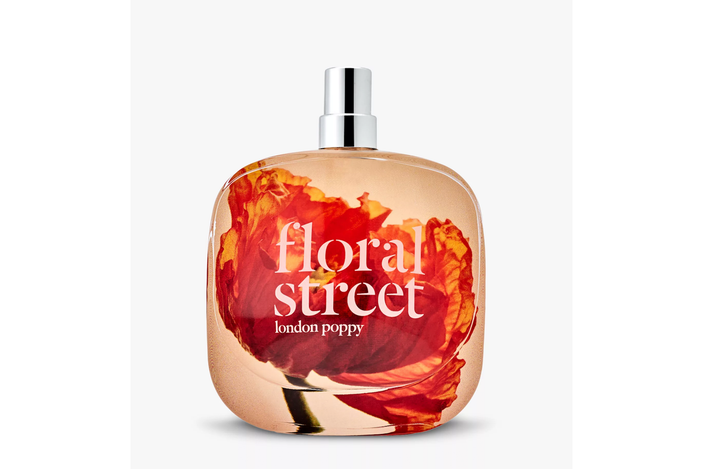
- Best For ride or die city dwellers
- Scent notes Lemon, floral orange blossom and cedar wood
- Size 50ml
As with many vegan brands Floral Street tick plenty more green boxes than just vegan and cruelty-free. Its environmental credentials range from having compostable packaging made with FSC-certified paperboard and pulp fibres; reusable elastic bands instead of cellophane.
London poppy is a scented homage to London: a city “as tough as ever-lasting poppies”, this citrus floral is blended with punchy notes of lemon and floral orange blossom, while a base of soft cedar wood stops it from spinning away altogether. The perfect tonic to pep you up if you’ve spent the best part of an hour being elbowed on the tube.
44160Tuesdays Hammersmith tea and biscuits
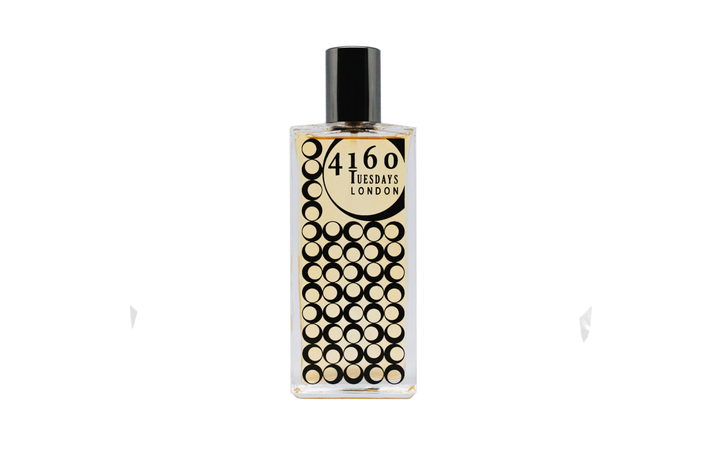
- Best For a dash of English eccentricity
- Scent notes Tea, vanilla, biscuits, hazelnut, wholemeal flour and ginger
- Size 30ml
Any English ex-pats abroad and longing for scents of home will appreciate the quirky charm of this cheery blend, a love letter to our British obsession with the humble cuppa. The black tea is taken with (vegan) oat milk and combined with hazelnut and ginger biscuits. Founder Sarah created it after moving studios to Hammersmith, an iconic South London haunt – popular for its riverside pubs, a historic music venue and no less than two tube stations.
If you’ve ever wandered down the high street on your lunch break, you might need to sit down with a cuppa to recover from the hustle and bustle (and occasional car chase). And this sweet and slightly smoky scent is the perfect tonic. No extra sugar required.
5The Body Shop white musk (re-launched)

- Best For lovers of a cult classic
- Scent notes Jasmine, lily and warm musk
- Size 30ml
Anyone who grew up in the Eighties and Nineties will be familiar with White Musk, which has to go down in the history books as one of the most nostalgic beauty products of all time. With its fresh floral notes of jasmine and lily of the valley, heightened with warm musky undertones, its uniquely sensual, yet light and oh so wearable bouquet instantly cemented its place in the Beauty Hall of Fame. It was particularly pioneering when it first launched due to its use of cruelty-free musk (traditionally obtained via extracting a gland from musk deers).
To mark the scent’s 40th birthday, it’s had a revamp and is now completely vegan (as certified by The Vegan Society) and more sustainable too, while retaining all the charisma of the original. Plus, the bottle is now 100 per cent recyclable and made from 42 per cent recycled glass. The Body Shop have also announced its commitment to become completely vegan by 2023.
6Vyrao witchy woo
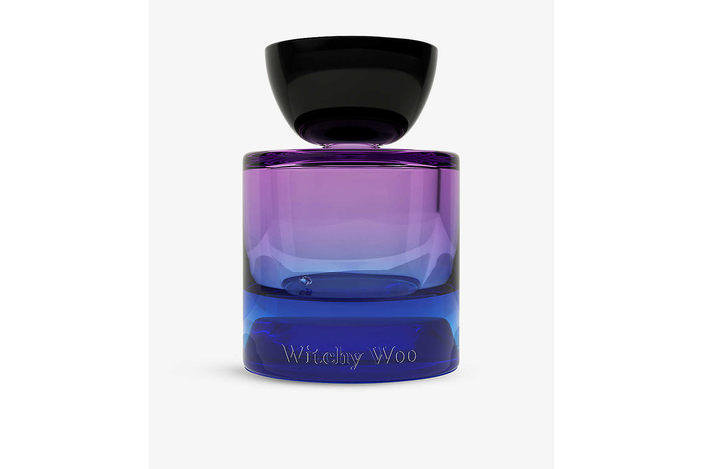
- Best For a scented suit of armour
- Scent notes Nutmeg and patchouli, frankincense and musks
- Size 50ml
Vyrao is the latest venture for fashion mogul and street style icon Yasmin Sewell. Created to amplify the wearer’s cosmic energy, each one comes with its own supercharged crystal (Sewell herself is a trained Reiki practitioner). Yet the vegan brand is also playful and fun, and its tongue-in-cheek names like witchy woo are a nod to that. Each perfume even comes with its own Spotify playlist.
Witchy woo is created to inspire “courage and creativity” with an intriguing caldron of earthy orris, warming nutmeg and patchouli, underscored with rich frankincense and musks. The perfect scent to spritz on when you have a big meeting or event coming up and need a little extra chutzpah with your morning coffee.
7Kingdom Scotland kingdom botanica

- Best For budding horticulturalists
- Scent notes Iced Chinese plum blossom, blackcurrant stems, pine needles, jasmine, frankincense, ginger lily, sandalwood and white musk
- Size 50ml
Founder Imogen Russon-Taylor created Kingdom Scotland to capture the dramatic contrasts of her native landscape (further inspired by her experience working with Scottish whiskey brands) and her latest offering, kingdom botanica brings the drama in spades. A green woody floral blend, it was created to mark 350 years since the establishment of the Royal Botanic Garden of Edinburgh – and the rare and exotic plants to that were imported and displayed there.
It opens with an intriguing sharp and verdant blend of iced Chinese plum blossom, blackcurrant stems and pine needles. It then dries down to reveal intoxicating heart notes of jasmine, frankincense and ginger lily, with a warming base of sandalwood and white musk.
8Jorum Studio trimerous
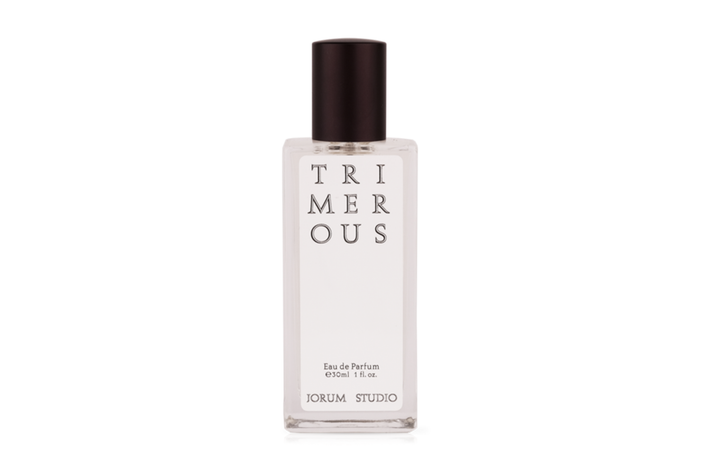
- Best For something a little different
- Scent notes Carrot seed, juniper, pink pepper, nectarine, bergamot, orris, oud, musk and incense
- Size 30ml
Scottish perfume is definitely having a moment, with enough beguiling blends to make Rabbie Burns write reams of sonnets in their honour. Case in point is Jorum Studio, whose scents are handmade in Edinburgh by Scottish perfumer Euan McCall along with his partner Chloe Mullen – and are poetic and proudly Scottish as would befit the Bard of Ayrshire himself.
Trimerous is inspired by “that eerie silence after the Harvest” as they “await the autumnal shift”. This unusual and slightly haunting (in a good way) bouquet combines intriguing notes of carrot seed and juniper, punctuated with sharp pink pepper, given added brightness with nectarine and bergamot. It dries down to a warm base of earthy orris, together with a hint of oud, musk and incense, making for one of the most unusual and intense scents our tester has encountered for a wee while.
Vegan perfume FAQs
“Cosmetics that involve animal cruelty are banned in the EU and UK,” notes perfumer and founder of 4160Tuesdays Sarah McCartney, whose own perfumes are mostly vegan (but a small number use honey or butter extracts). “But if a perfumer uses [whale secretion] ambergris which was washed up on a beach – rather than taken from a slaughtered whale – that is legal. But its use can also encourage illegal whaling, which is why it’s been banned in Australia and the US.
“However, these days, perfumers use a material called Ambrox – a trademark – and similar materials to do the same job, so it’s not necessary. Ambergris on a notes list generally means ‘smells like ambergris’, but is actually Ambrox.” Other synthesised versions of animal-derived ingredients include civetone, and muscone.
What are synthetic ingredients?
Synthetic ingredients help to eradicate animal-derived ones, but vegan perfume brands often prioritise natural ingredients. Many of the vegan perfumes our tester found contained predominantly natural ingredients and championed themselves as such.
While admittedly some synthetic musks (PCMS) commonly used in fragrance are non-biodegradable petrochemicals and come with environmental and health concerns, there are many natural ingredients that have been deemed equally questionable. “Natural” doesn’t always mean “better” for your skin (nor for the planet for that matter), so spritz them on with caution, especially if you have sensitive skin.
Is cruelty free the same thing as vegan?
If a perfume is “cruelty-free” this doesn’t automatically mean it’s vegan too. “Cosmetics that involve animal cruelty are banned in the EU and UK,” notes perfumer and founder of 4160Tuesdays Sarah McCartney, whose own perfumes are mostly vegan (but a small number use honey or butter extracts).
“But if a perfumer uses [whale secretion] ambergris which was washed up on a beach – rather than taken from a slaughtered whale – that is legal.” She adds. So it’s a murky minefield at the best of times. Happily, ingredients such as ambergris, together with musk and civet are being created in synthetic (i.e. vegan) form, so we can spritz on without the sacrifice.
The verdict: Vegan scents
Given many natural vegan perfumes (especially citrus ones) don’t tend to have the punch or staying power of their synthetic counterparts, we were impressed with Bon Parfumeur 001. While our tester isn’t of the opinion natural perfumes are inherently preferable to synthetics (synthetic vegan alternatives helped to replace natural animal-derived ingredients after all), this certainly impressed them, being both natural, yet incredibly unique and long-lasting at the same time. With beautiful scents like these, vegan perfume clearly doesn’t mean sacrificing on quality of the juice – we think non-vegan perfumers should take note too.
For more perfume ideas, read our guide to the best women’s perfumes
Mother’s Day is on the horizon, so find the perfect present with our guide to the best Mother’s Day gifts
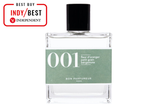



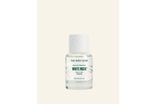


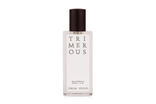
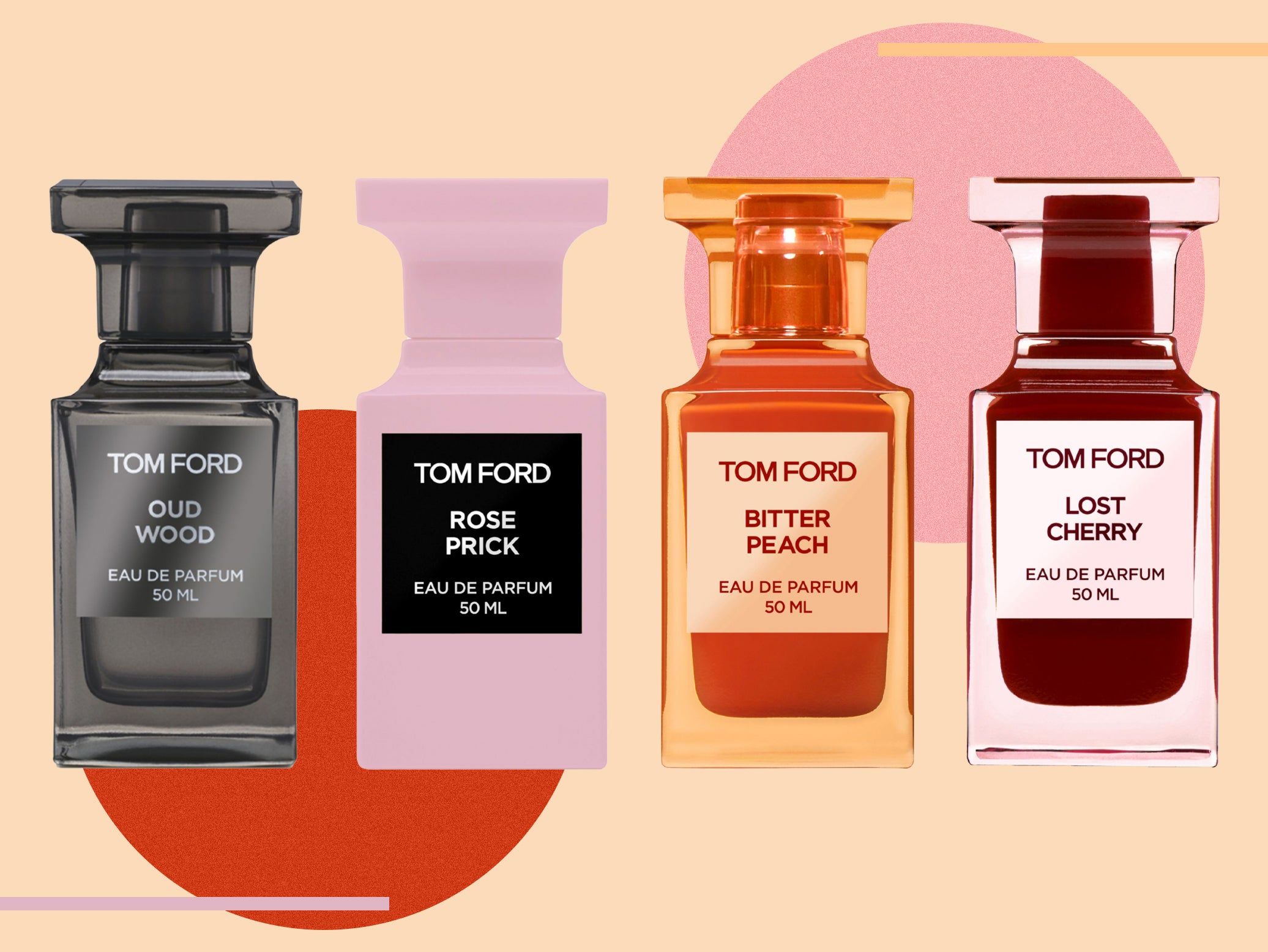
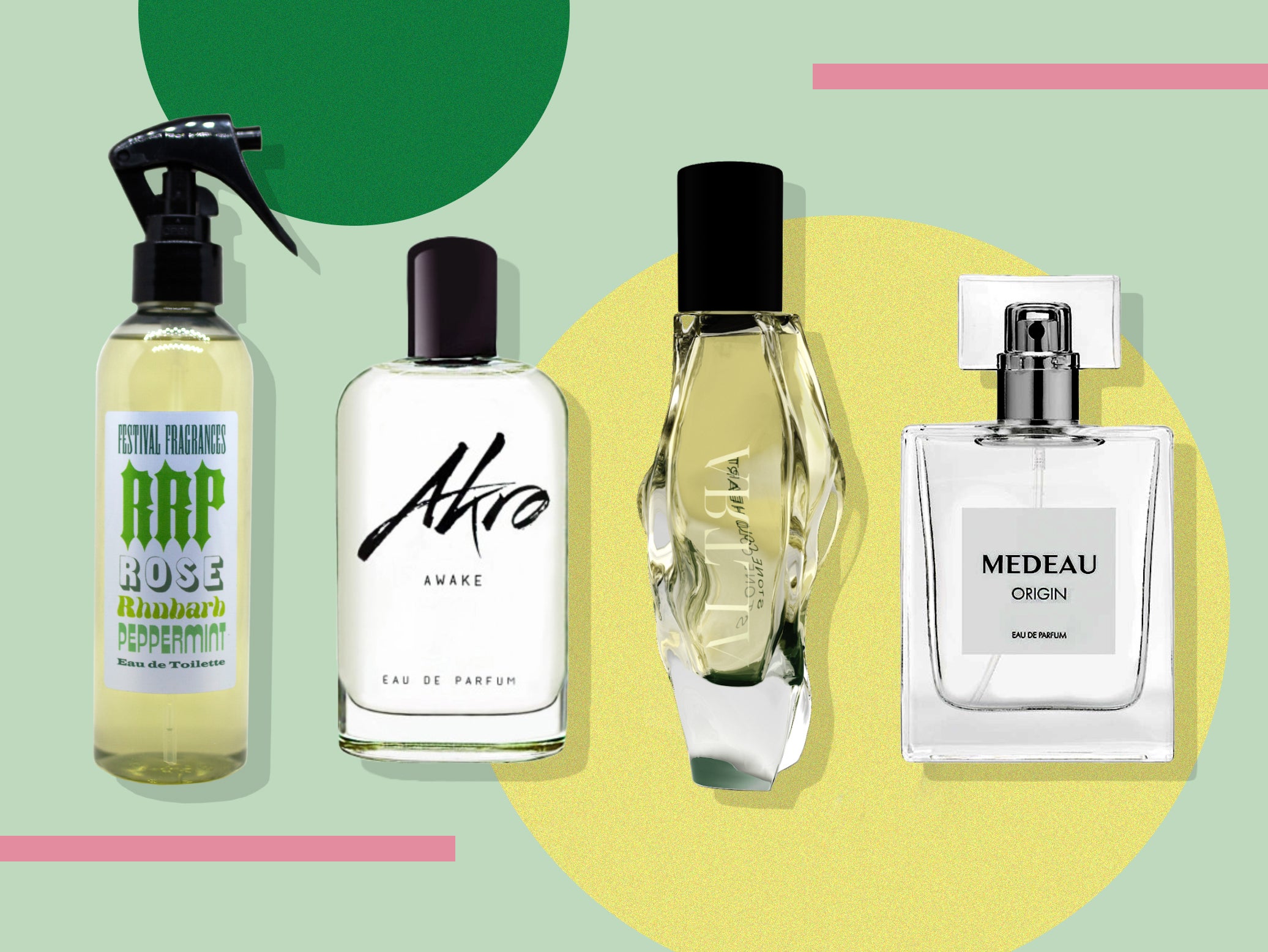
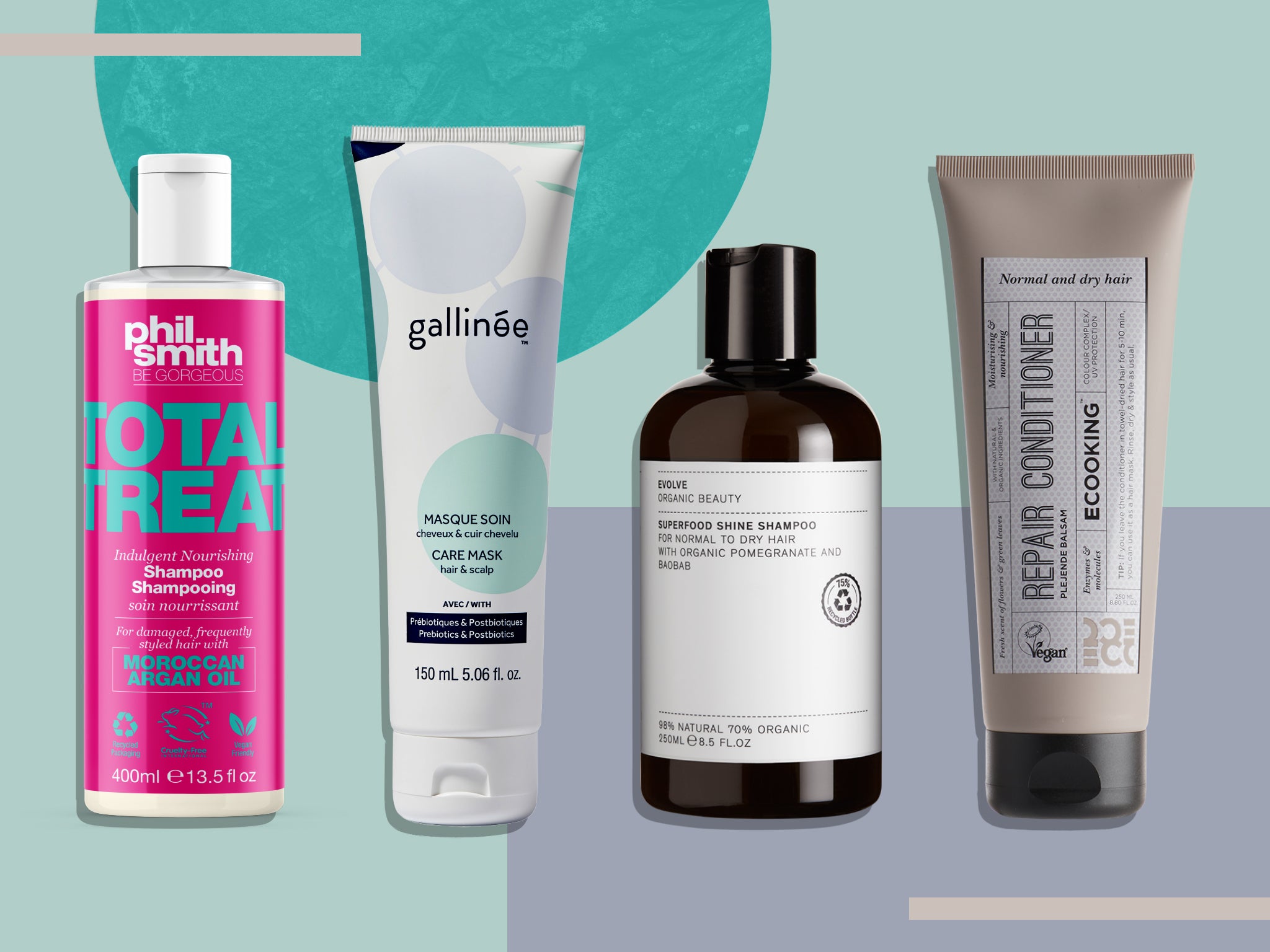

Bookmark popover
Removed from bookmarks